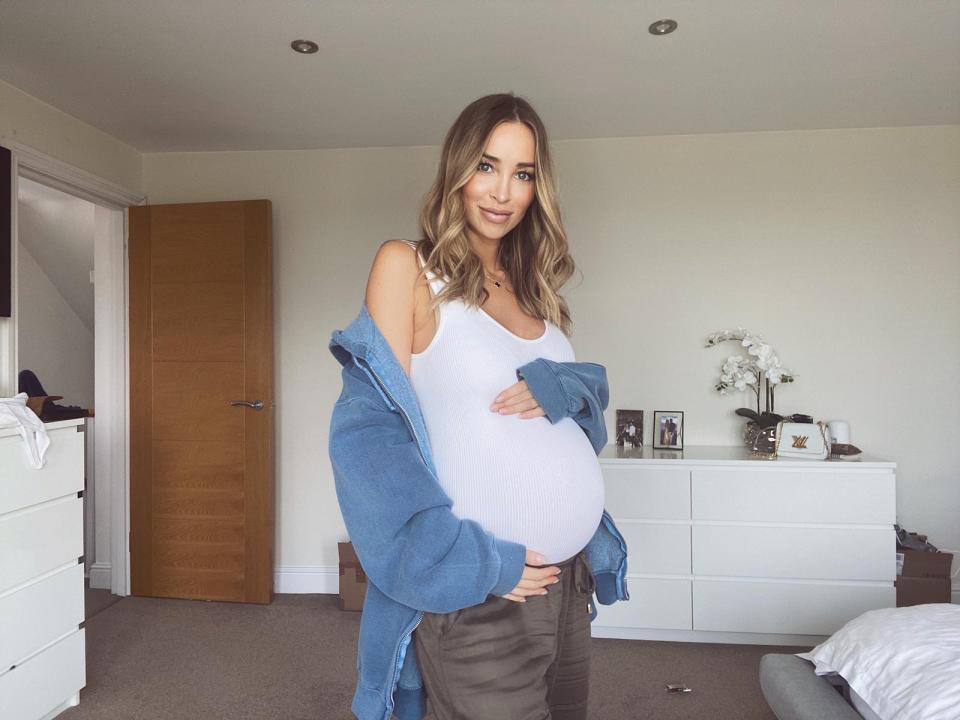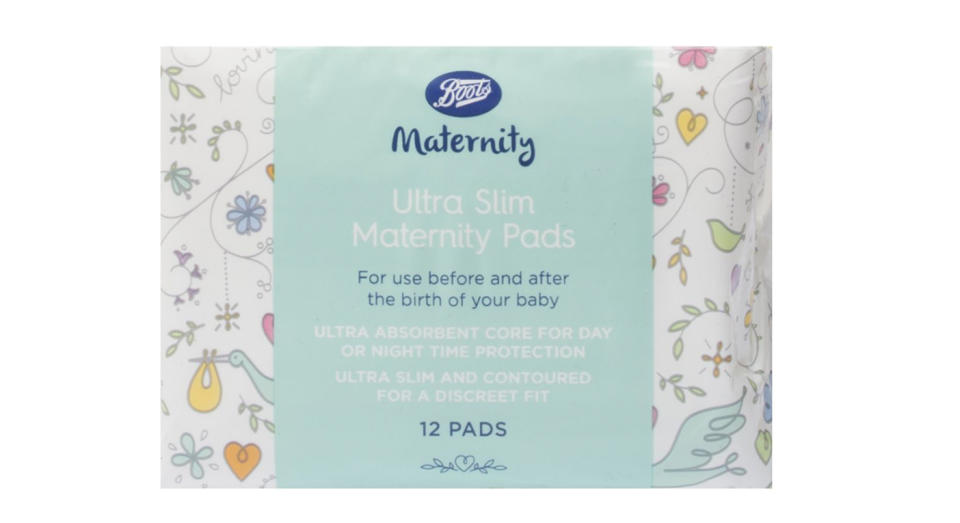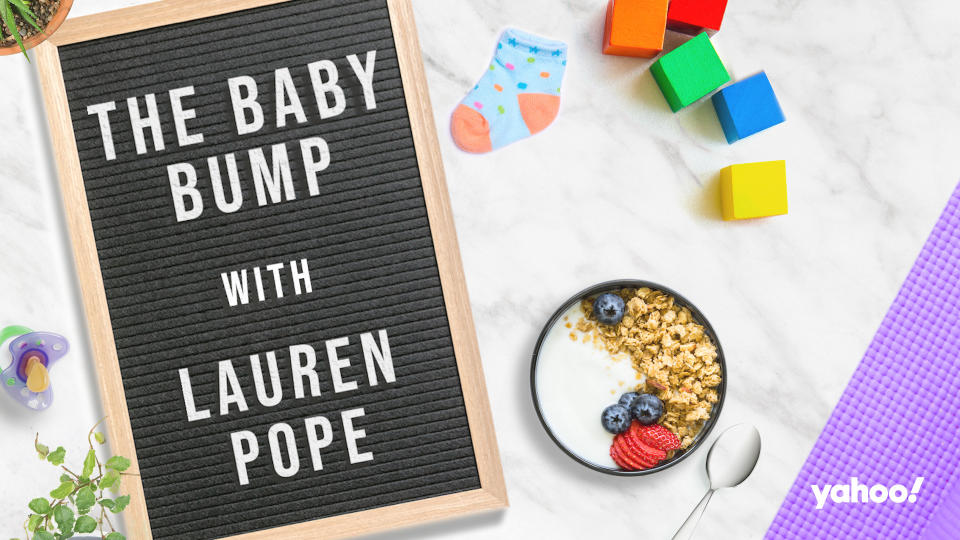How to have a positive birth during the coronavirus pandemic, according to a doctor
Many people have been impacted by the coronavirus pandemic, and one particular group have had to adjust their plans to fit into the government guidelines.
Although the restrictions are easing at some hospitals, pregnant women and parents-to-be would have experienced a number of changes to a usual pregnancy over the past three months.
From partners not being allowed in the hospital during labour and scans, to routine midwife appointments being conducted over the phone, this is new territory for both parents and hospitals.
That’s not to say that it’s not still possible for women to have a positive birth experience, though. According to Dr Brooke Vandermolen, who runs online antenatal classes at The Birth Collective, it’s completely achievable.
Read more: Baby sleep expert debunks newborn myth

Speaking on Yahoo UK’s The Baby Bump with Lauren Pope, Dr Vandermolen gives her top tips on how to have the positive birth experience you had planned in different circumstances.
“If you haven’t been through it before you might not be aware of the changes,” Dr Vandermolen reassures first-time mums.
“Everyone’s worried and anxious and that’s just part of it, we have to help with those things. In terms of the physical changes you experience, you’re probably having less appointments and when you come into hospital people might be wearing masks which might make it difficult to communicate.”
She explains: “At the moment, especially because the number of cases of coronavirus are dropping in hospitals, there shouldn’t be too many affects on your actual birth if you don’t have coronavirus at the time.”
Read more: A baby sleep routine for the first 12 weeks is “pointless” says expert
At present, the rules on allowing birthing partners into the labour ward differs regionally, so pregnant women are advised to speak to their midwives about the situation at their hospital.

Despite the changes, Dr Vandermolen feels confident that you can have a positive experience.
“The best thing you can do to keep calm is to arm yourself with information.
“Read around what to expect, find people you trust on social media or watch an online antenatal course. Prepare for what’s ahead by writing down your questions so you don’t forget anything, record voice notes to listen to from your loved ones and that way you won’t feel alone,” she advises.
She describes hypnobirthing, which is a method of pain management involving visualisations and deep breathing exercises, as a great tool, one that works “even better in a pandemic”.
“It’s a tool to calm your breathing down when you’re in a time of really high stress,” she explains.
“When you don’t know what’s coming round the corner, perhaps you would usually have had your mum and your partner during your birth and actually you can only have one person, use these things to calm you down.”
As well as hypnobirthing, Dr Vandermolen recommends affirmations - positive birth statements - dim lights and nice smells.
“Control the things you can control,” she recommends.
Read more: Expert-approved baby sleep aids
In light of the pandemic, some parents-to-be have considered home births, which they perhaps wouldn’t have done if the coronavirus wasn’t around.
Just recently, Sky News newsreader, Sarah-Jane Mee, announced she was planning a home birth because of the coronavirus pandemic.
Speaking about this decision, Dr Vandermolen describes home births as a great choice for women, but says that there were restrictions in place at the height of the pandemic.
“The service was mostly stopped during the peak of the pandemic due to long ambulance attendance times and high pressures on staff.
“As these pressures ease, you can certainly discuss if home birth is an option for you. Its important to consider if you are suitable.
“Home births are safe as long as there are no risk factors for your pregnancy for your own health or your unborn baby. Otherwise, if there are any complicating factors during birth you will need transfer to hospital so we would like to minimise those risks.
“You should also feel reassured that hospitals are taking lots of extra measures to keep the risks of transmission as low as possible, making it a safe environment to give birth,” she tells Yahoo UK.
5 top-rated items to add to your hospital bag
Yahoo Lifestyle is committed to finding you the best products at the best prices. We may receive a share from purchases made via links on this page. Pricing and availability are subject to change.
Avène Soothing Thermal Spring Water Spray | £8 from Boots
The NHS suggest packing a fan or water spray to help cool you down during labour.
Avène’s spring water spray features a unique formula that is naturally soothing and is suitable for sensitive and hypersensitive skin.
Boots Ultra Slim Maternity Pads | £2.39 from Boots
The maternity pads by Boots are extra long with a super absorbent core, ideal for use when your waters have broken and after birth. They also come individually packaged for discreet use.
Lansinoh Disposable Nursing Pads | £6 from Boots
The nursing pads feature super absorbent polymer that keeps milk and moisture away from your skin. They also feature non-slip adhesive tape to keep the pad in place.
Birth Bag Pre Packed Maternity Hospital Changing Bag Essentials | £34.99 from Amazon
If you would rather buy everything all together, Amazon is selling a pre-packed Birth Bag that has all the essentials for mother and baby, including maternity pads, breast pads, biodegradable baby wipes, nappies and toiletries.
My Expert Midwife No Harm Nipple Balm 30ml | £16.50 from Boots
The top-rated nipple balm provides fast relief for sore and cracked nipples when breastfeeding.
The natural ingredients include a medical grade lanolin for a protective barrier, coconut oil for moisture and almond oil for nourishment.










